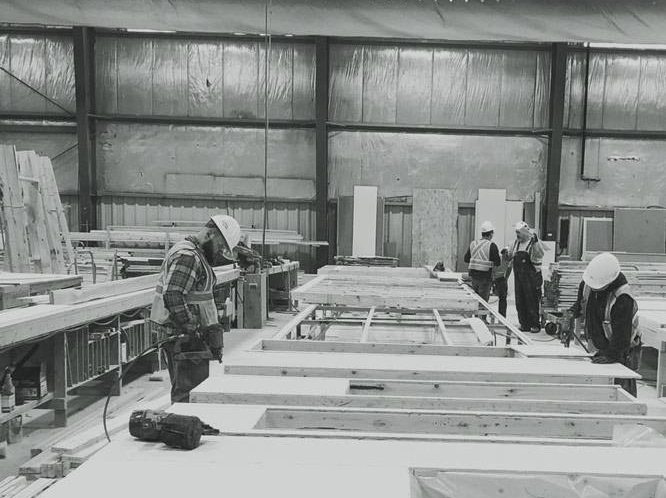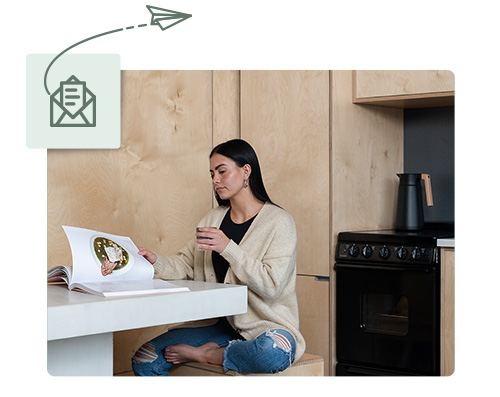This blog post takes a deeper dive into Modal’s business model. We’ll cover the modular construction process and market trends, as well as more details on why this is the perfect time to invest in alternative living spaces.
Let's talk about modular construction and why we're building modular. We believe at Modal that modular construction is the future of construction. Now, not all types of construction can happen in a factory, but certain types of housing are very conducive to building in the factory. Modular construction generally produces 90% less waste and 43% fewer carbon emissions than traditional site-built constructions. You may not build a customer's 3,000?4,000 square foot home in a factory, but these ADUs with their small contained footprint, are the perfect product to build in the factory environment. Our builds are happening two times faster at a 10% cost reduction than traditional site-built construction.
Additionally, we're seeing trends in this space. You know, if you were to build an automobile, automobiles are built in the factory. You would never ship glass and sheet metal components to your home and hire local labor to assemble a car on site. It's simply not efficient. The same automobile manufacturing processes are beginning to work their way into the housing market. We're seeing the same efficient factory processes and principles being used to deliver certain types of housing. In the United States, less than 1% of construction is modular. In Japan and a number of European countries, that number is upwards of 20%. We've seen major technological advances in modular construction during the last decade in the United States, and we expect this industry to really heat up.

Modal's business model is designed to be lean and mean. We have a low breakeven rate and a very efficient delivery process. Our business model allows us to be cash flow positive on a project basis. Once a customer signs a purchase agreement, they fund the entire amount of the project into an escrow account so we know, and our contractors know, that we're going to get paid. This allows us to become cash flow positive and profitable very quickly. Traditionally, construction is a hyperlocal service. There are only a handful of home builders, for example, that operate on a nationwide scale. Modular construction, in particular, allows us to take this ADU construction market and scale it. Right now, we're delivering products in Utah, Nevada, and California. California happens to be one of the hottest ADU markets in the country. But we expect it and we've built a process to be able to scale nationwide.
Since the company was founded in January of 2019, we have seen incredible traction. We have launched four products, we've sold more than 60 units, and we've delivered nearly half of those. Again, we're selling in Utah, Nevada, and very focused on the hot California market. We've spent the last couple of years really putting together a team that can deliver a high volume of ADUs. We believe we're now at a point where we're ready to scale.
Looking into the future, we've come a long way and there's a very exciting road ahead of us. It is Modal's intention to become the leading nationwide ADU provider. This is an ambitious goal and I'm confident that we can do it. We will take the funds from our recent capital raise and we will invest in our products, team, sales, and marketing to increasingly take market share. We will also continue to invest in in-house financing options. The solar industry, once financing options expanded and became more widely available, cracked wide open and we expect the same to happen in the ADU industry. We plan to be at the forefront of these trends and again to reduce friction for our customers and offer as many financing options as we can for them.
We are continuing to explore new and exciting channel partnerships with realtors, contractors, and property managers. We have a handful of larger, exciting developer deals in the pipeline ranging in deal size from five to 50 units, and we expect a number of those deals to close before the end of the year. We plan to continue to invest heavily in layered-on technology to provide ADU-related services to our customers and generate annual recurring revenue from our customer base.
September 22, 2021
